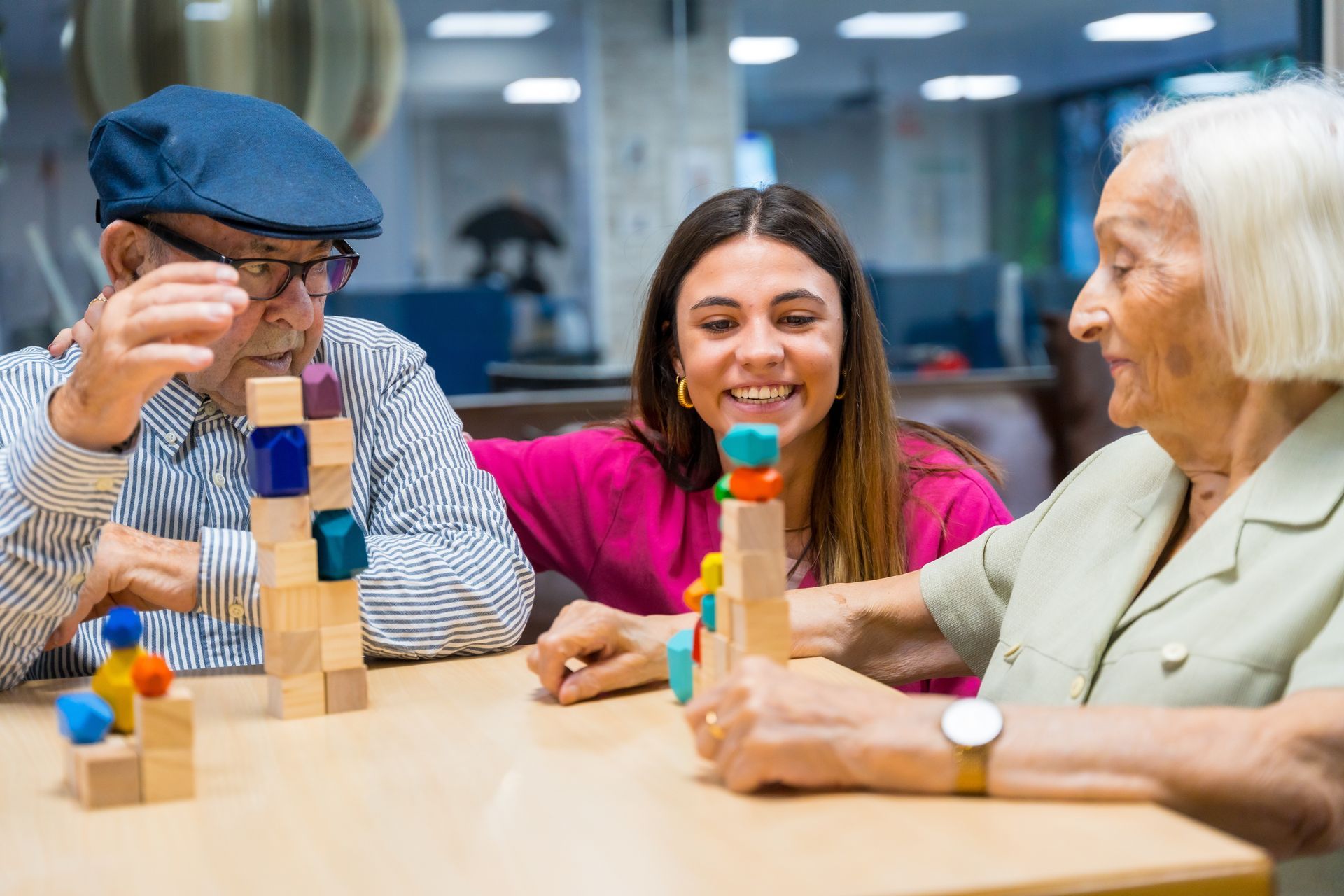BLOG
Preparing for Medical Appointments: 5 Tips for Caregivers and Patients
Managing medical appointments can feel overwhelming for caregivers and patients, especially when juggling numerous responsibilities. Proper preparation reduces stress and improves the quality of healthcare outcomes. Caregivers, especially those supporting seniors, are critical in organizing and optimizing medical visits. By planning and staying informed, caregivers can ensure that every appointment effectively meets the patient's needs.
Clear communication with healthcare providers is essential for seniors to maintain their well-being and address any health concerns. Seniors and their caregivers must navigate complex medical systems and manage multiple health conditions.
1. Understand the Patient’s Medical History
Gathering an accurate medical history is crucial for a successful medical appointment. Patients and caregivers should create a comprehensive document outlining past and current health conditions. Include details such as previous surgeries, chronic illnesses, allergies, and medications. Updating this document ensures that healthcare providers have a complete picture of the patient’s health.
This information helps doctors diagnose issues more accurately and recommend appropriate treatments. A well-prepared medical history can also prevent unnecessary tests or conflicting treatments. For seniors managing multiple conditions, this becomes particularly important for avoiding complications. Caregivers should regularly review and revise the medical history to ensure all details are current.

In addition to written records, patients should carry copies of recent lab results or imaging studies. These documents provide healthcare professionals with valuable data for monitoring progress. Bringing these materials to every appointment reduces the chance of overlooked issues and fosters a collaborative approach to care.
Finally, caregivers should familiarize themselves with the patient’s medical history so that they can confidently discuss it during appointments. Knowledge of this information helps clarify concerns and enables better communication with medical staff. For seniors with memory challenges, this step becomes even more vital.
2. Prepare a List of Questions and Concerns for Medical Appointments
Before attending a medical appointment, caregivers and patients should compile a list of questions. This list ensures that important topics are not forgotten during the visit. Questions can range from understanding treatment options to clarifying potential side effects of medications. Addressing mobility issues or chronic pain management may also be a top priority for seniors.
Caregivers should involve patients in creating this list to accurately reflect their concerns and priorities. Start by discussing recent changes in health, symptoms, or treatments. This approach allows caregivers to advocate for the patient effectively.
During the appointment, use the list to guide the conversation with the healthcare provider. This structured approach keeps discussions focused and ensures every concern is addressed. By providing a clear agenda, you can also help alleviate the anxiety accompanying medical visits.
Lastly, caregivers should leave space for follow-up questions based on the doctor’s recommendations. Being flexible and prepared to adapt ensures that all aspects of care are thoroughly covered. This proactive communication is key to building a strong relationship with healthcare providers.
3. Organize Essential Documents Before Medical Appointments
Bringing the necessary documents to a medical appointment simplifies the process and improves outcomes. In addition to the patient’s medical history, caregivers should pack insurance cards, identification, and medication lists. These items are often required for routine check-ins to ensure a smooth administrative experience.
For seniors managing multiple prescriptions, maintaining an updated medication list is critical. This list should include dosage information and when and how medications are taken. Providing this to healthcare providers helps them assess potential interactions or adjust treatments as needed.
Advance care planning documents, such as power of attorney or living wills, may also be relevant for seniors. These documents ensure that medical providers understand the patient’s wishes in critical situations. Caregivers should store these papers in an accessible, secure location for easy retrieval.
Finally, caregivers should consider creating a portable medical file for emergencies. A well-organized folder containing essential documents saves time and ensures seamless communication with medical teams. For patients with cognitive impairments, this level of preparation becomes indispensable.
4. Coordinate Transportation and Accessibility Needs
Transportation logistics play a significant role in the success of medical appointments, especially for seniors with mobility challenges. Caregivers should plan to ensure reliable transportation to and from the facility. This planning can involve scheduling a family member, hiring a transport service, or using specialized medical transportation.

Accessibility at the medical facility should also be evaluated beforehand. Contact the provider’s office to confirm that wheelchair ramps, elevators, or other accommodations are available. Addressing these details in advance minimizes stress and makes the visit more comfortable for the patient.
Caregivers should check that seniors with mobility aids, such as walkers or wheelchairs, are in good condition. This ensures the patient can navigate the facility without difficulty. If mobility aids need servicing, address this before the appointment to avoid unnecessary complications.
Lastly, consider the patient’s energy levels when scheduling appointments. Seniors often perform better earlier in the day, making morning appointments ideal. Aligning appointment times with their natural rhythms can enhance focus and communication during the visit.
5. Communicate Effectively with Healthcare Providers
Effective communication between patients, caregivers, and healthcare providers is crucial for achieving optimal outcomes. Caregivers should serve as advocates, ensuring the patient’s concerns are conveyed. Begin appointments by summarizing key issues and providing relevant documentation. This sets the tone for a focused and productive discussion.
Active listening is equally important for understanding the provider’s recommendations. To ensure nothing is overlooked, take detailed notes on diagnoses, treatment plans, and follow-up steps. Visual aids or written instructions can help seniors remember complex information.
Caregivers should also ask for clarification when medical terminology or recommendations are unclear. Providers expect questions and appreciate proactive efforts to understand treatment plans. This open dialogue fosters trust and improves long-term collaboration.
Lastly, establish a system for tracking follow-up care, including lab tests or specialist appointments. A dedicated calendar or app can help caregivers stay organized. Regularly updating this system ensures that nothing is missed, promoting continuity of care.
Simplify Medical Appointments with Expert Support
Navigating medical appointments is complex, especially for seniors with diverse healthcare needs. Caregivers are critical in ensuring appointments are productive, well-organized, and aligned with the patient’s best interests. Every step, from managing medical histories to effective communication, matters in creating positive healthcare experiences.
At Assured Senior Living, we understand the challenges caregivers and seniors face during medical visits. Our tailored services support families by managing care coordination, transportation, and documentation. With our expertise, caregivers can focus on providing emotional support while we handle the logistics.
Contact us today to learn how Assured Senior Living simplifies the healthcare journey for seniors and their loved ones. Let us guide you through every step of the process, ensuring peace of mind and exceptional care.















